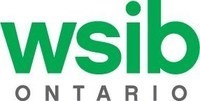WSIB to provide coverage for COVID-19 cases
If your construction site isn’t clean, you could end up paying for it in more ways than one.
 The Workplace Safety and Insurance Board released its adjudicative approach to claims relating to the novel coronavirus (COVID-19) on March 23. The approach entitles workers to benefits for COVID-19 when the disease arises out of, and in the course of, the worker’s employment.
The Workplace Safety and Insurance Board released its adjudicative approach to claims relating to the novel coronavirus (COVID-19) on March 23. The approach entitles workers to benefits for COVID-19 when the disease arises out of, and in the course of, the worker’s employment.
The challenge for employers is, if the WSIB adjudicator confirms that the worker’s workplace made a significant contribution to his or her contracting COVID-19, the cost of the claim would be allocated to the employer through the WSIB’s Rate Framework program.
The Construction Employers Coalition for WSIB and Health & Safety Prevention (CEC) issued a letter to WSIB chair Elizbeth Witmer and president Tom Teahen on March 24 expressing concern about this approach. The CEC comprises such organizations as the Ontario General Contractors Association (OGCA), the Ontario Road Builders Association, the Kingston Construction Association, the Niagara Construction Association, and others. Collectively, the coalition members represent more than 2,000 companies and 80,000 Ontario workers.
“The last thing that is needed at this time is to expect that Ontario employers will advance their immediate self-interest by monitoring WSIB adjudication of COVID-19 cases,” wrote CEC chair David Frame. “During this public emergency, employers must be immunized against direct cost accountability for any and all COVID-19 claims.”
The CEC is calling for the WSIB to assign cost accountability for COVID-19 cases to Schedule One employers as a group, rather than to individual employers.
“We fully understand that the existing policy puts construction employers at extreme risk in a situation over which [they] have little direct control,” the OGCA indicated in a March 26 newsletter. “We will do everything possible to encourage the WSIB to protect employers by implementing our recommendation.”
In its adjudicative approach document, the WSIB cites a number of factors that adjudicators will consider as they make a determination on the validity of claims. Principal among these is whether the nature of the worker’s employment created a risk for contracting the disease—beyond a level of risk to which the public is not normally exposed.
The board will evaluate each case individually, and will weigh such factors as:
- whether a contact source to COVID-19 within the workplace can be identified,
- whether the nature and location of the workplace places the worker at risk for exposure to infected persons or infectious substances,
- whether there was an opportunity for transmission of COVID-19 in the workplace, and
- whether the incubation period of the virus from the date of exposure to the onset of COVID-19 links back to the workplace.
Subject-matter experts from WSIB could not be reached for comment on the matter.
John Russell, an Ottawa lawyer who specializes in managing WSIB claims for employers, suggested that the board‘s approach appears to be in keeping with its increased emphasis on individual accountability among employers.
“This is perhaps with an eye toward emphasizing the importance of employers taking the necessary steps to keep their worksites clean, thereby helping to limit the further spread of the virus,” he said.
Regardless, the message issued by Premier Doug Ford to the construction industry—to clean up its sites—resonates loudly. Many industry associations, including the Ottawa Construction Association and the OGCA—have published resources for contractors on how to maintain proper site safety and hygiene and limit the spread of the virus among workers.
It is so far unclear whether the WSIB consulted with industry before issuing its amended approach.








